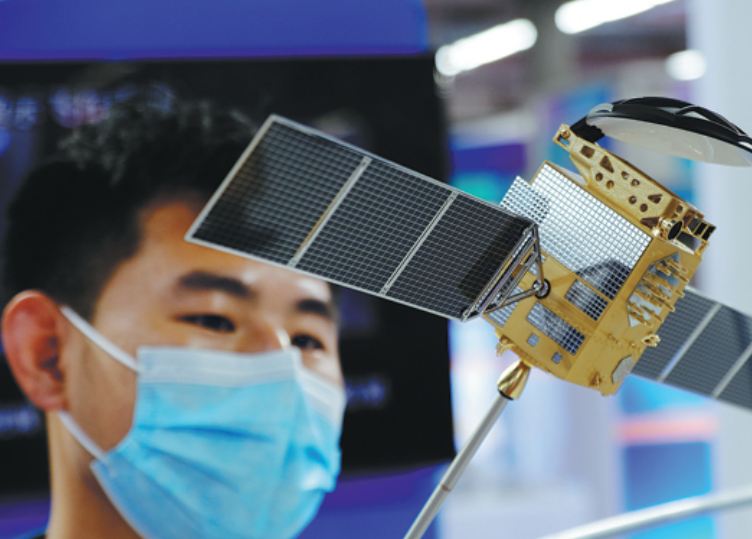China and Africa will strengthen cooperation on Beidou satellite system


China and Africa will strengthen their communication and cooperation in promoting and using the Beidou Navigation Satellite System, according to an international forum in Beijing on Friday.
Officials, industry leaders and researchers from China, several African nations and the African Union shared their thoughts at the First China-Africa Beidou System Cooperation Forum and agreed to take advantage of the Beidou system to benefit social and economic development in Africa.
He Yubin, chairman of the China Satellite Navigation Committee, said at the forum that his committee is willing to share its experience and expertise of Beidou's applications with Africa and work with African countries to design Beidou-based solutions for their socio-economic development.
China will join hands with Africa to promote Beidou-based services on the continent to foster local industries and businesses and help to create more jobs and reduce poverty.
Xu Hongliang, secretary-general of China National Space Administration, said the administration is dedicated to sharing China's space achievements with Africa to nurture the continent's science and technology. It is also determined to improve space industry professionals' exchanges and training to facilitate African countries' efforts to enhance their own space capability.
Yang Changfeng, Beidou's chief architect, read a document at the forum about both sides' vision for promoting cooperation in Beidou applications.
Representatives from nearly 50 African nations including eight government ministers and eight ambassadors to China took part in the event.
Beidou is currently China's largest space-based system and one of the four global navigation networks, along with the United States' GPS, Russia's GLONASS and the European Union's Galileo.
In June 2020, the final satellite to complete Beidou's third-generation network was lifted by a Long March 3B carrier rocket at the Xichang Satellite Launch Center in Sichuan province and was placed into a geostationary orbit about 36,000 kilometers above the Earth.
President Xi Jinping announced a month later that the system had been completed and started providing full-scale global services.
Since 2000, a total of 59 Beidou satellites, including the first four experimental ones, have been launched from Xichang on 44 Long March 3-series rockets, with some of them having retired.
Beidou began providing positioning, navigation, timing and messaging services to civilian users in China and other parts of the Asia-Pacific region in December 2012. At the end of 2018, it started providing basic global services.
Now, there are 30 third-generation Beidou satellites in three types of orbit — 24 in medium-Earth orbits, three in inclined geosynchronous satellite orbits and three in geostationary orbits.
There are some second-generation Beidou satellites in operation offering regional services, according to the China Satellite Navigation Office.































